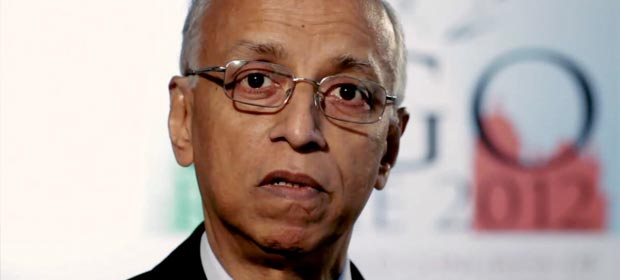There are considerable challenges ahead for health managers in sustainably implementing the governance recommendations made by the HSE Investigative Group into the care and the death of the late Savita Halappanavar, writes Maureen Browne.
There are considerable challenges ahead for health managers in sustainably implementing the governance recommendations made by the HSE Investigative Group into the care and the death of the late Savita Halappanavar.

Managers are very acutely conscious of the great tragedy of the death of Ms. Halappanavar and determined to play a lead role in implementing the report’s recommendations.
There is universal agreement on the importance of this report for the health services in general and not just for hospital services and considerable discussion on the challenges ahead for managers in properly and sustainably implementing all the recommendations.
One manager said: “We all think this is an excellent and far-reaching report, with implications for hospital and community services and our anxiety is to ensure that we can really implement all its recommendations in the face of slashed resources and staff shortages, including the loss of so many managerial people.”
It needs to be about observation and public and private audit and that is part of confidence building which is needed to assure the public and others that best practices are being observed.”
Another manager agreed saying “As managers, our job is all about safe care , implementing protocols and guidelines, flagging up problems and ensuring staff training, where appropriate and this is the thrust of the report’s recommendations. But this is not just a matter of ticking boxes. It involves our being there on the ground and ensuring that staff and resources are in place, so that guidelines and protocols are implemented not only de jure, but de facto and sustainably.
“The report stresses again and again the importance of clear communications and protocols, procedures and systems. The challenge for managers is to follow this through and ensure that the staff and financial resources are in place to facilitate this in all areas.”
Welcoming the recommendations, a hospital manager said that it gave new impetus and authority to the governance aspect of managers’ work. “The report makes it very clear that we must have sufficient staff in place, that they must work together as teams and have clear escalation policies and staff and processes to facilitate this.”
“Managers need to ensure that there are robust clinical handover processes in place which they can stand over. This is particularly important in view of the fact that in some cases a staff member may be handing over to five or six different teams.
“There are different tools coming through about standardised communication, but this involves everybody being trained in these and as a manager you have to ensure you can get them released for training and then assure yourself through audit that it is effective. Shortage of staff makes it more difficult get staff released for training and with the current very tight system people have time problems doing audits in the case of the multiple protocols which are coming in.”
A number of managers pointed out that the Clinical Care Programmes are trying to standardise care which is best practice and to be welcomed, but they involve significant changes in practice for many people and managers need to ensure that everybody is following these same pathways.
“What we are talking about here is executive governance which requires the general management to work in partnership with the clinical managers to put systems, protocols and practices in place that enable staff to work in accordance with best practice”, said a hospital manger.
“There needs to be training of staff and familiarisation of staff with all protocols. We have to have a sharp focus on the measurement of compliance.”
A community care manager said it also raised many issues for his sector. “Take something simple like home care packages for example – we will need to ensure that they are adequate to manage the risks and this can be quite tricky. The client has to be assessed for what is needed, then the decision taken as to what will be provided and you have to check that what was deemed necessary is happening and that the initial assessment is accurate, because circumstances may seem different when the patient is actually home. Plans need to be flexible and capable of adapting to changing needs of the individuals.
“We have to look at what can be provided with the available resources and that means not compromising on standards and quality or on caring, so it is a big task.”
One very experienced manager commented “I equate it to the dashboard on a car. The manufacturer decides what instruments are required to guide the driver, the driver needs to observe what the instruments are saying and then take remedial action if necessary and make sure that a service is provided at regular intervals to ensure that everything is functioning in the order which the manufacturer put in place.
“It needs to be about observation and public and private audit and that is part of confidence building which is needed to assure the public and others that best practices are being observed.
The report into the care and death of the late Savita Halappanavar report compiled for the HSE under the Chairmanship of Prof. Sir Sabaratnam Arulkumaran, Professor Emeritus of Obstetrics and Gynaecology at St. George’s University of London. The other members of the Investigative Team were Ms. Cora McCaughan, HSE National Incident Management Team (Deputy Chairperson), Prof. James Walker, Consultant Obstetrician and Gynaecologist, University of Leeds, Prof. Mary Horgan, Consultant in Infectious Diseases, Cork University Hospital and Professor in the School of Medicine, University College Cork, Dr. Brian Marsh, Consultant in Intensive Care Medicine, Mater Misericordiae University Hospital, Dublin, Ms. Cathriona Molloy, Service User Advocate, Patient Focus and Ms. Geraldine Keohane, Director of Midwifery & Nursing at Cork University Maternity Hospital, Cork.
Download the Savita Report

